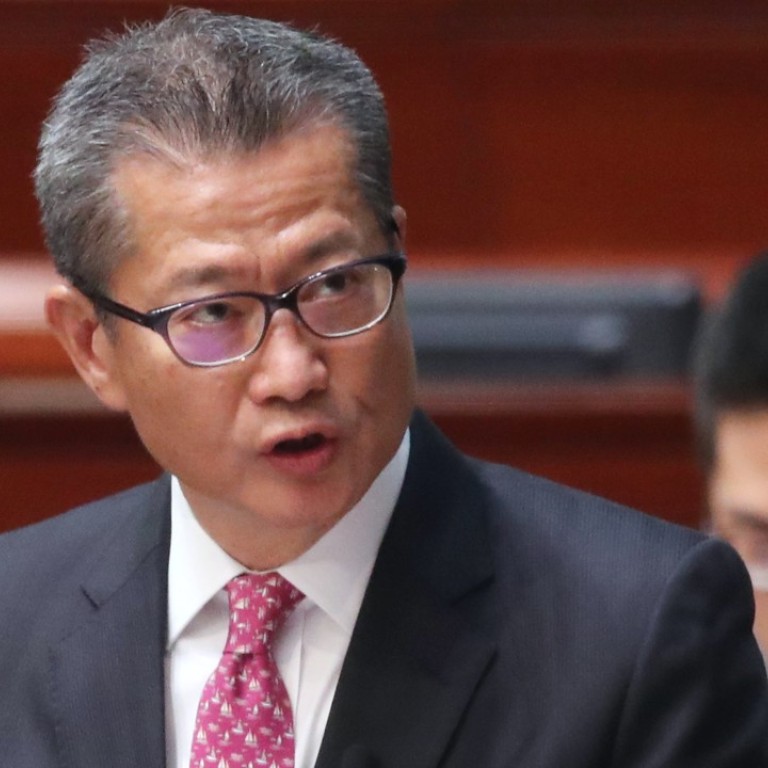
Bumper tax benefits for 1.88 million Hongkongers thanks to record HK$138 billion surplus, Paul Chan reveals in budget speech
As it happened: with city holding surplus of HK$138 billion, administration announces HK$50 billion in relief measures
Budget highlights
- Close to 40 per cent, or HK$52 billion, of a record HK$138 billion surplus going to relief measures
- A massive HK$50 billion set aside to promote innovation and technology development
- Government estimates higher growth in Hong Kong’s GDP, of 3 to 4 per cent this year
- Property rates waived for all four quarters, capped at HK$2,500, benefiting 3.25 million taxpayers
- Government restores a one-off allowance for the city’s neediest group, dubbed the N-nothings, which was scrapped two years ago
- One-off cash subsidies of HK$2,000 for poor students and waived exam fees for 2019 Hong Kong Diploma of Secondary Education Examination
Paul Chan dishes out sweeteners worth billions to Hong Kong taxpayers
Chan detailed measures to diversify Hong Kong’s economy, enhance people’s lives, nurture talent, increase land resources and help the poor and the elderly.
With a record-breaking HK$138 billion surplus, Chan announced a series of salary and profit tax rebates and rates waivers, which were more generous compared with last year. Tax allowances were also increased.
12.53pm – Speech ends
The financial secretary’s remarks ran one hour and 50 minutes.
12.52pm – Concluding remarks
Chan says the budget is “not a panacea for all our problems”. He expresses gratitude to Hongkongers who devote themselves to the betterment of the city’s future.
The government will “spare no effort” in solving problems and improving people’s livelihoods, he says.
Chan believes Hong Kong has weathered many storms in the past, and looking forward, the city will be able to “brave the wind and the billows to turn our dreams into reality”.
12.50pm – The city’s medium-range forecast
Chan expects the city to record surpluses in the next five financial years, with a “small deficit” surfacing beginning in the 2021/22 year.
Fiscal reserves are estimated to reach HK$1.223 trillion by March 2023 – enough to cover 21 months of government expenditure.
12.45pm – Waiving exam fee and providing grants to pupils
Chan says the government will also pay the examination fees for candidates sitting the 2019 Hong Kong Diploma of Secondary Education Examination, involving an expenditure of about $180 million.
He will also provide a one-off grant of HK$2,000 to each student in need to support learning, involving an expenditure of about $740 million.
12.44pm – Two months’ worth of extra allowances for the poor and elderly
Chan pledges to provide an extra allowance for social security recipients, equal to two months of the standard-rate comprehensive social security assistance payments, old-age allowances and disability allowance. This will involve an additional expenditure of about HK$7 billion.
Similar arrangements will apply to recipients of the Low-income Working Family Allowance and Work Incentive Transport Subsidy, involving an additional expenditure of about HK$379 million.
Last year, Chan announced an extra allowance for social security recipients, equal to one month of the standard rates.
What does it mean to be poor in Hong Kong, and how many people live in poverty?
12.43pm – Rates waiver ceiling more than doubled
Chan waives rates for four quarters of 2018/19, subject to a ceiling of HK$2,500 per quarter for each rateable property. This proposal is estimated to benefit 3.25 million properties and reduce government revenue by HK$17.8 billion.
Last year, Chan waived rates for four quarters of 2017/18, but the ceiling was much lower, at HK$1,000 per quarter for each rateable property.
12.42pm – Profits tax rebate
The financial secretary announces a reduction in profits tax for 2017/18 by 75 per cent, subject to a ceiling of HK$30,000. The reduction will be reflected in the final tax payable for 2017/18. This will benefit 1.88 million taxpayers and reduce tax revenue by HK$22.6 billion.
Last year, Chan announced a reduction of profits tax for 2016/17 by 75 per cent, but that ceiling was HK$20,000.
12.40pm – Salaries tax matters
Chan announces reducing salaries tax for 2017/18 by 75 per cent, subject to a ceiling of HK$30,000. The reduction will be reflected in the final tax payable for 2017/18. This will benefit 1.88 million taxpayers and reduce tax revenue by HK$22.6 billion.
Last year, he announced a reduction of salaries tax for 2016/17 by 75 per cent, but the ceiling was only $20,000.
In addition, the financial secretary widens the tax bands for salaries tax from the current HK$45,000 to HK$50,000, increasing the number of tax bands from four to five.
The marginal tax rates of the five bands will be 2, 6 , 10, 14 and 17 per cent respectively. He says the measures will reduce the tax burden of 1.34 million taxpayers and reduce tax revenue by HK$4.09 billion a year.

Chan increased basic and additional child allowances from the current HK$100,000 to HK$120,000. This will benefit 335,000 taxpayers and reduce tax revenue by HK$1.31 billion a year.
He adds various allowances for maintaining a dependent parent or grandparent.
The allowance for maintaining a dependent parent or grandparent aged 60 or above will increase from the current HK$46,000 to HK$50,000. For a dependent parent or grandparent aged between 55 and 59 it will increase from the current HK$23,000 to HK$25,000.
Deduction ceiling for elderly residential care expenses will also increase from the current HK$92,000 to HK$100,000 for taxpayers whose parents or grandparents are admitted to residential care homes.
He also introduces a personal disability allowance for eligible taxpayers, at a rate on par with the current disabled dependant allowance of HK$75,000. This will reduce tax revenue by about HK$450 million a year.
12.39pm – Scrapping MPF offsetting mechanism?
But Chan says the administration will commit HK$15 billion for such measures after the proposal gets a consensus from major stakeholders.
12:38pm – Ethnic minorities
Chan says the chief secretary, Hong Kong’s No 2 official, will set up a steering committee to coordinate and enhance collaboration within the government to support the city’s ethnic minorities. He promises to earmark HK$500 million for it.
Meet the ethnic minorities breaking through Hong Kong’s race barrier
12.35pm – Children’s welfare
Chan refers to Hong Kong seeing several child abuse cases recently. To tackle the problem, he will launch a three-year pilot programme so that nurseries, kindergartens and families have easier access to social services.
Similar efforts will be launched at the primary level so that schools can afford to hire social workers.
12.31pm – Electric cars
Is the electric car industry 'demoralised' by Hong Kong government policy?
12.30pm – District facilities
Chan says he will earmark HK$8 billion in response to district councils’ demand for more public facilities. Another HK$2 billion will go to modernising public markets in the coming decade, and will include improving and renovating facilities and installing new air conditioning systems.
12.25pm – Sports development
HK$1 billion for the Arts and Sport Development Fund will help sports organisations train athletes and host competitions.
An additional HK$5 billion will be given to the Elite Athletes Development Fund, on top of HK$1 billion already dished out.
Hong Kong government’s HK$5 billion boost for sport not all it seems
Promoting reading
Chan says HK$200 million will be spent on public libraries promoting reading, especially among the young. The government will also work with publishers and writers to promote reading among all residents.

12.20pm – Arts and culture
Chan says there will be a HK$20 billion infusion for the improvement and development of cultural facilities. Upcoming projects for the next decade include a New Territories East Cultural Centre, expansion of the Hong Kong Science Museum, the History Museum and City Hall.
More funds will be directed to supporting local arts groups and performers going overseas.
Another HK$300 million will be allocated to promote the city’s intangible cultural heritage, such as Cantonese opera.
12.19pm – Tax break for long-awaited medical insurance scheme
Chan proposes a tax deduction with a ceiling of HK$8,000 per insured person for those who join the Voluntary Health Insurance Scheme.
12.16pm – Community health care
In the third quarter of next year, the government will progressively set up district health centres in all 18 districts, expanding the programme from just one centre in Kwai Tsing.
The elderly health care voucher scheme will be increased from HK$4,000 to HK$5,000 this year to allow users greater flexibility, Chan says. This will involve expenditure of about HK$796 million.
A programme screening people with a risk of colorectal cancer will be extended to cover people aged between 50 and 75, incurring a total expenditure of HK$940 million over the coming five years.
12.13pm – Public hospitals receive big increase in annual funding
On public hospitals, as predicted earlier by the Post, the Hospital Authority will receive nearly HK$6 billion in additional recurrent funding, taking the total to more than HK$60 billion in 2018-19, Chan says. The more than 10 per cent increase is the biggest in five years. Chan mentions the recent flu surge and the work pressure on frontline medics.
Chan says he has invited the authority to start work on the second 10-year hospital development plan, rather than wait for a mid-term review of the first 10-year plan announced under former chief executive Leung Chun-ying, which is set for 2021. The new review, expected to deliver 3,000-4,000 additional hospital beds, will look at the redevelopment of Princess Margaret Hospital, Tuen Mun Hospital, North Lantau Hospital, and the construction of a hospital at a King’s Park site which is currently part of Queen Elizabeth Hospital.
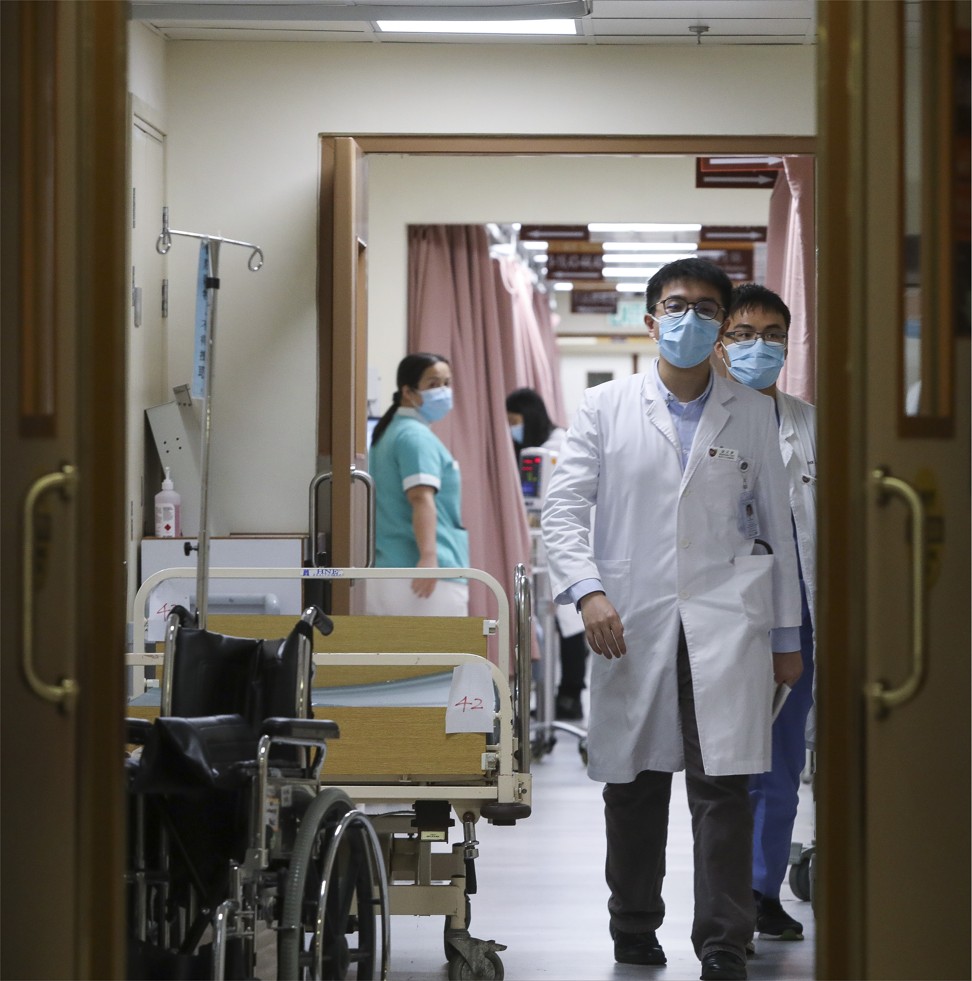
On manpower, Chan touches on training places for doctors, dentists, nurses and relevant allied health professionals in coming three years. Currently there are only 470 places available for medicine at two universities each year, and the schools say it is difficult to add places. Chan did not specify how places can be boosted.
He announces setting aside HK$300 billion as an initial provision to support the second 10-year review and increase healthcare training facilities.
Public hospitals are short of about 300 doctors and at least 200 nurses.
12.10pm – Using abandoned schools
Abandoned schools across the city will get a makeover and be leased out to NGOs.
The government is set to funnel HK$1 billion towards subsidising renovation and restoration costs.
An audit report in 2015 revealed that many empty school sites had been left idle, with some being abandoned for up to 35 years.
Out of 183 vacant school sites, 70 per cent of them were located in rural areas without proper transport infrastructure, and each was smaller than 32,000 square feet in area.
12.08pm – An eye on youth
The Youth Development Commission, which will be formed in the first half of this year and chaired by Chief Secretary Matthew Cheung Kin-chung, receives HK$1 billion to promote youth development. Chan hopes the panel will address young people’s concerns about education, career prospects, home ownership, public policy, and political participation.
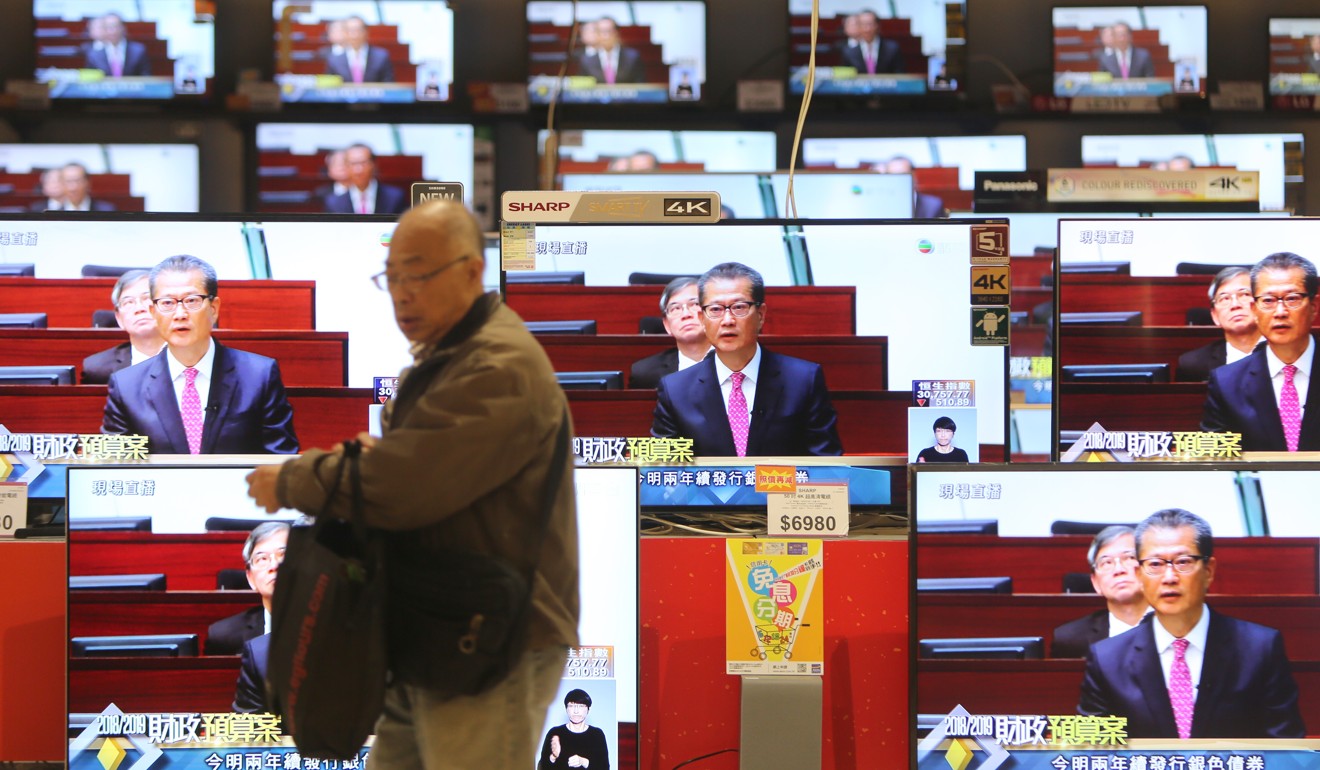
12.07pm – Encouraging continuing education, too
Chan says the subsidy ceiling for the Continuing Education Fund will double from HK$10,000 to HK$20,000 per applicant, and the upper age limit for applicants is being extended to 70.
Chan will put an additional HK$8.5 billion into the fund, and it is expected that a total of about 610,000 recipients will benefit from the enhancements.
12.05pm – Quality education
Chan proposes committing an additional HK$2 billion for achieving a quality education.
One highlight is increased nursing support for schools for children with disabilities, while another HK$2 billion will be earmarked for lift installations at public schools for building barrier-free campuses.
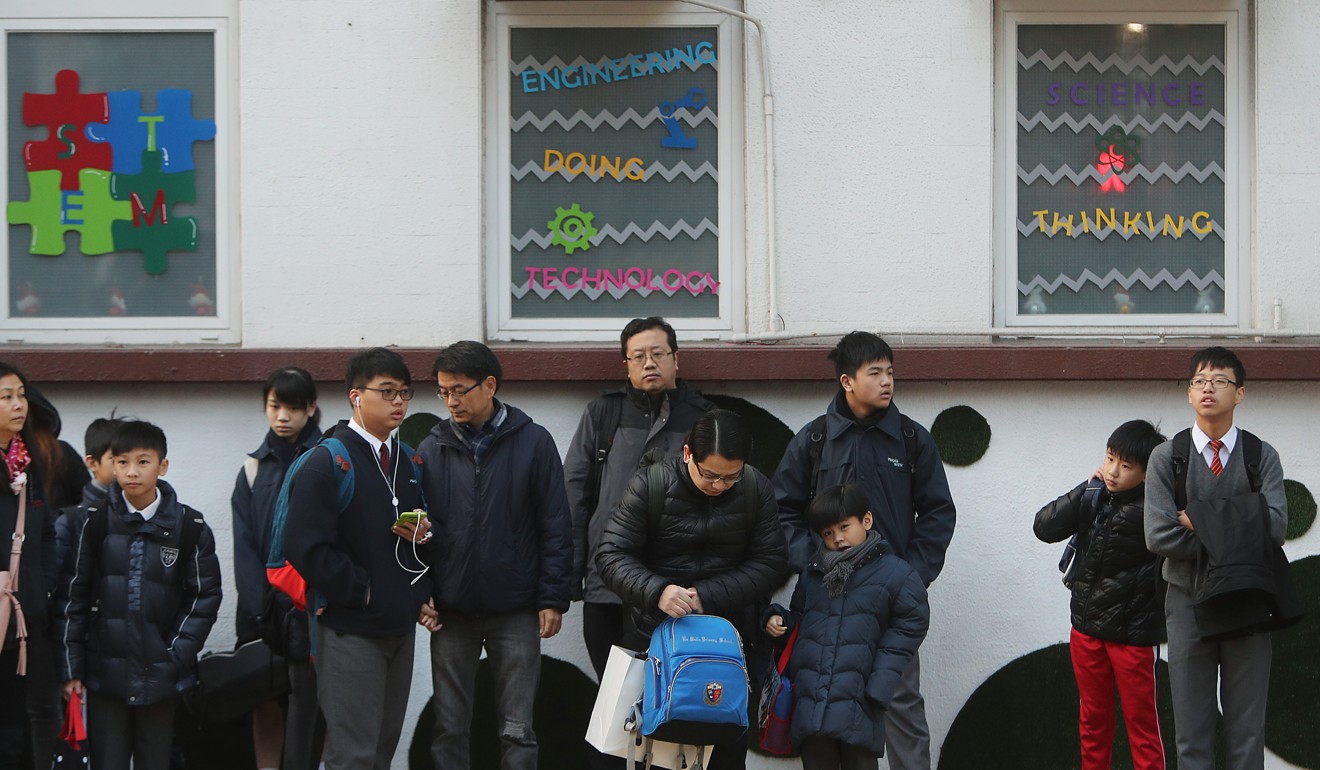
12.02pm – Creative industry gets HK$1 billion
Chan announces injecting HK$1 billion into the CreateSmart Initiative (CSI) this year to support creative industries, especially in nurturing young people and helping start-ups.
12pm – Construction Innovation and Technology Fund
Now an hour into his speech, Chan announces a HK$1 billion Construction Innovation and Technology Fund to encourage construction firms to adopt new technology, such as building information modelling, prefabrication yards and modular integrated construction methods.
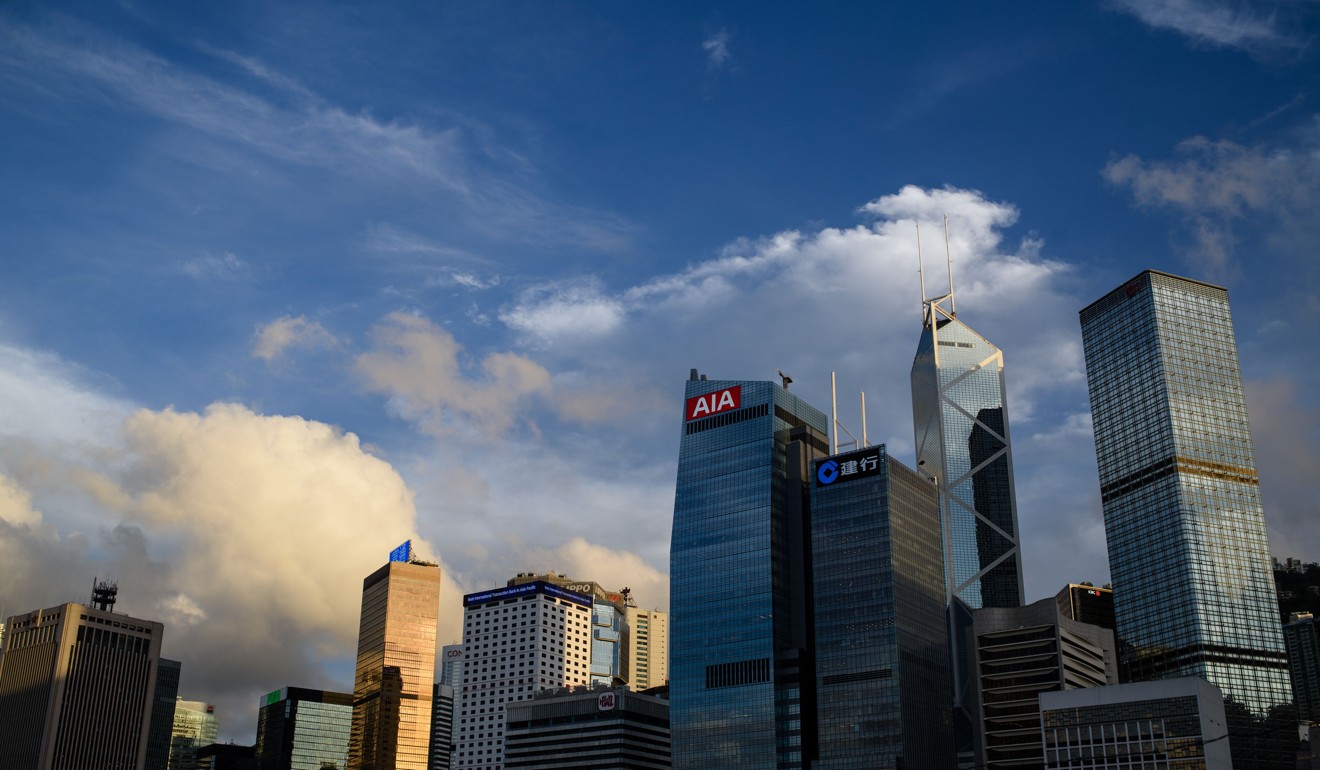
11.58am – Help for SMEs
Chan plans to help small and medium-size enterprises and start-ups by enhancing a range of current funding schemes: injecting HK$1.5 billion into the dedicated fund on branding, upgrading and domestic sales; and HK$1 billion into the SME export marketing and development funds.
11.55am – Ocean Park tickets
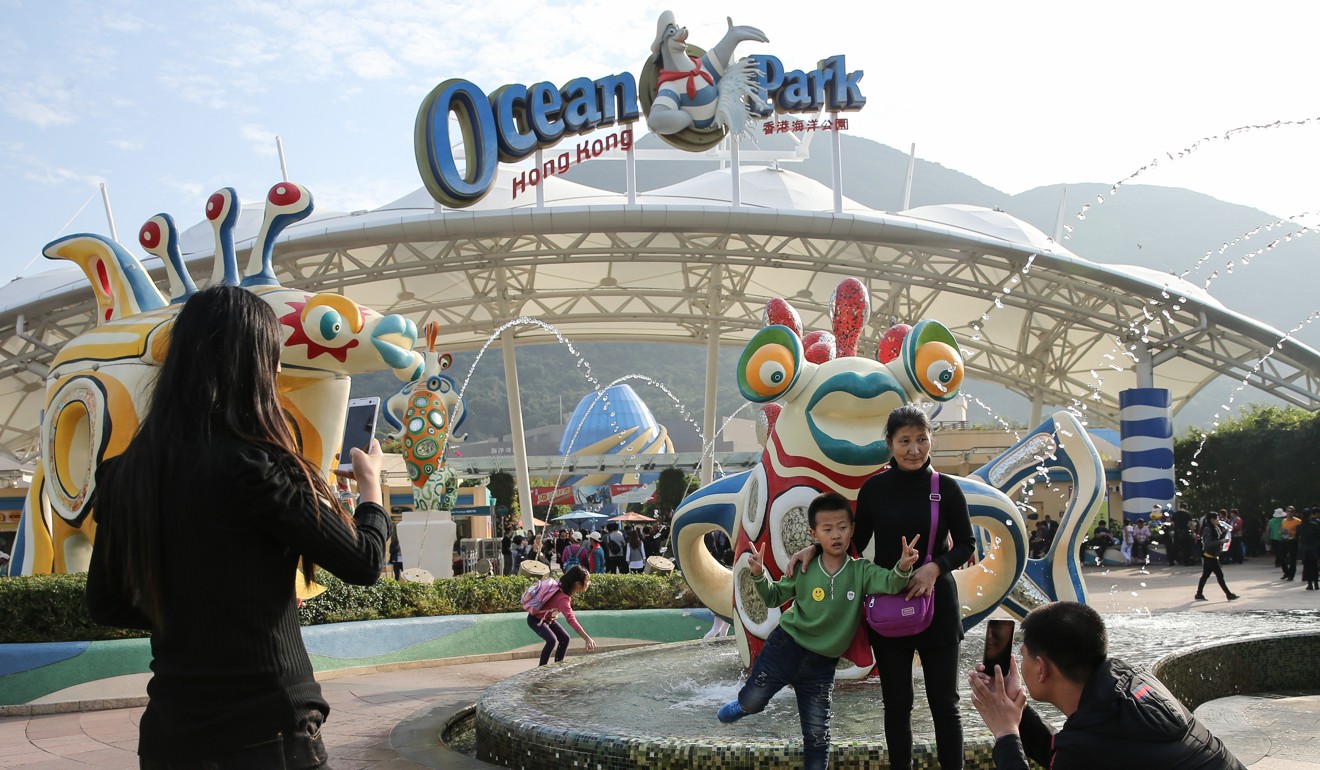
The measures form part of a wider allocation of HK$396 million for the industry in developing Hong Kong into a “world-class premier tourism destination”.
11.52am – Air freight system upgrade
To maintain Hong Kong’s status as the world’s busiest airport cargo hub, Chan sets aside money and land to upgrade the airport’s infrastructure.
A 5.3-hectare site has been identified to develop a more modern air cargo logistics centre, while HK$5 billion will help upgrade the 20-year-old air mail centre.
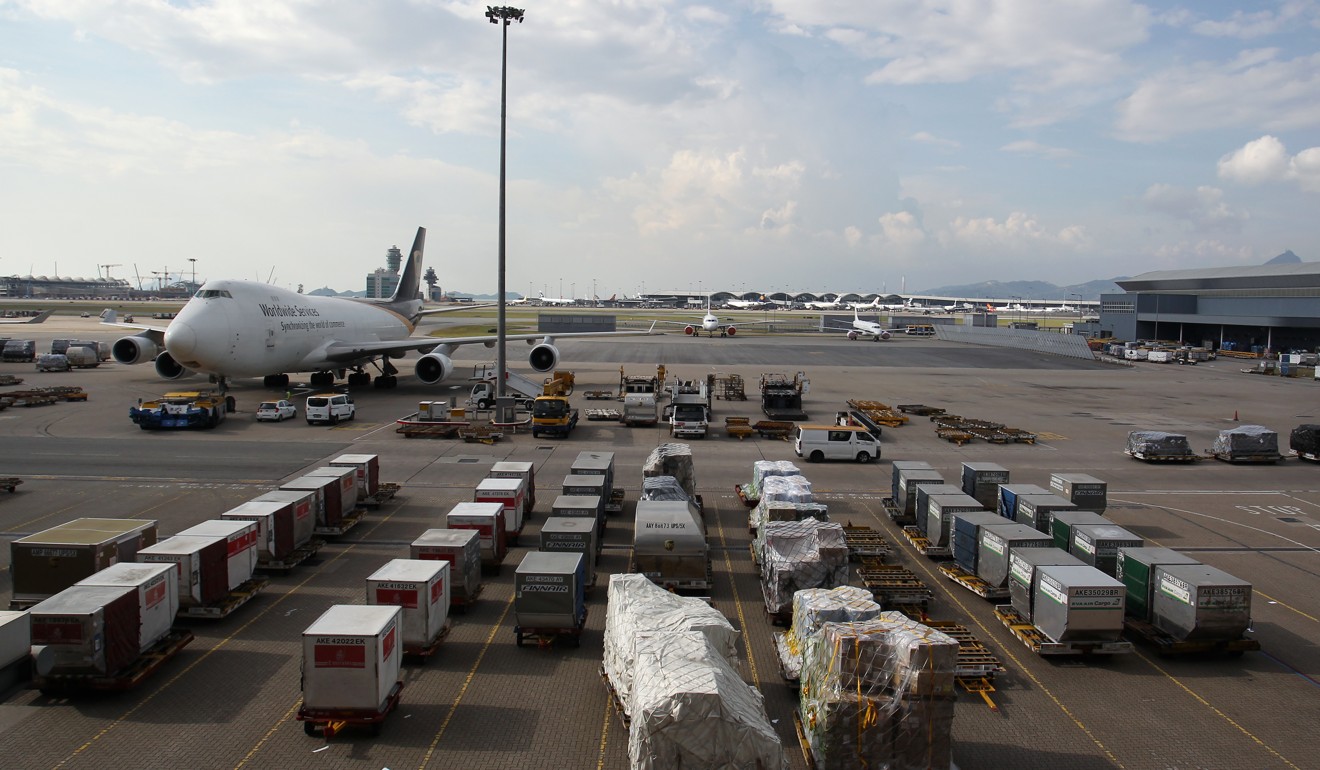
11.49am – Free-trade agreements and air cargo
Chan says the city has signed four free-trade agreements with overseas economies, and will continue Chan says Hong Kong International Airport has been one of the world’s busiest for seven years in a row. He notes new global trends, such as the rise of e-commerce, have presented substantial opportunities.
11.47am – HK$500 million for financial services
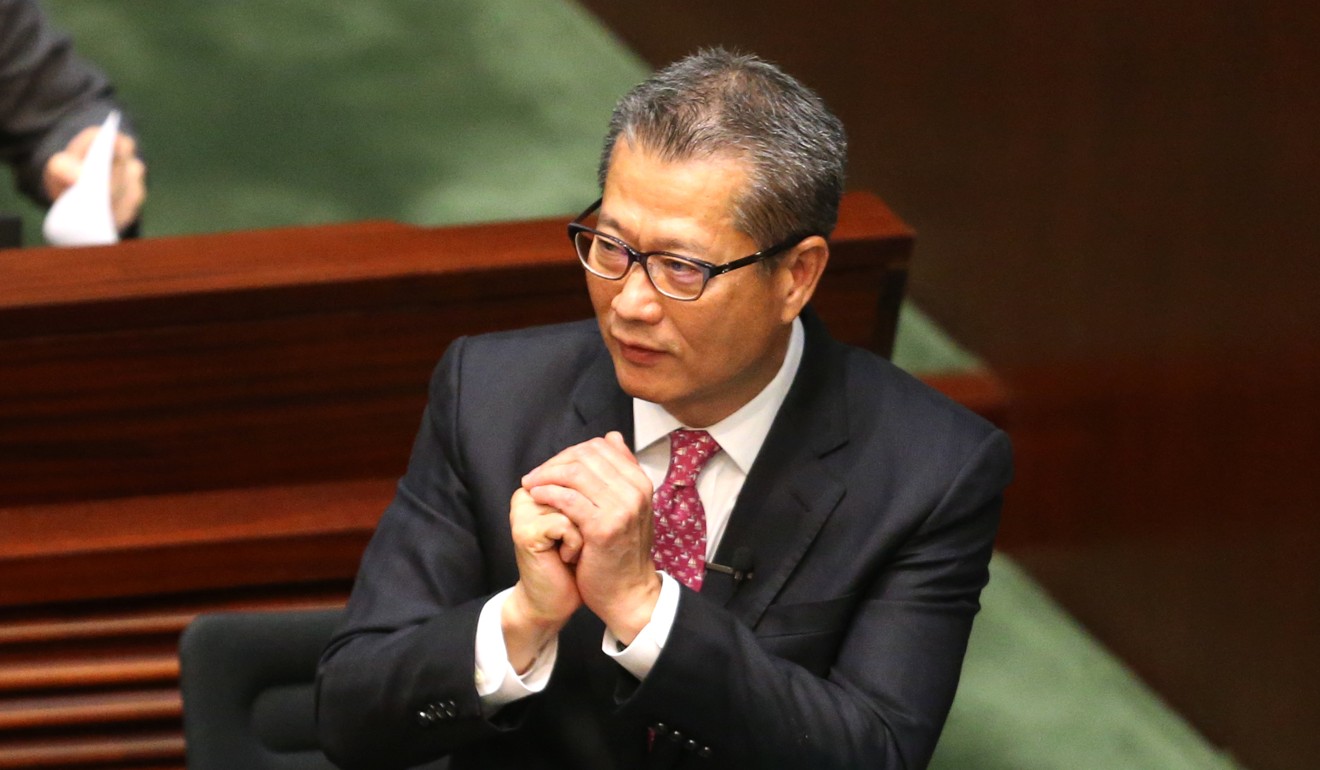
11.46am – Tax law reform for corporate treasury centres
Chan reveals the government will further amend the Inland Revenue Ordinance to extend the coverage of profits tax concession to attract multinational and mainland enterprises to establish corporate treasury centres in Hong Kong.
11.45am – Issuing ‘green bonds’
Chan proposes a “green bond issuance programme” with a borrowing ceiling of HK$100 billion.
The measure will encourage more issuers to arrange financing for green projects through Hong Kong’s capital markets. The government will submit a resolution to Legco as soon as possible so that the inaugural government green bond can be issued in 2018/19.

11.36am – E-sports score a mention
Chan says he will invest HK$100 million to develop the e-sports industry, aiming to turn Cyberport into a hotspot for the emerging sector, as well as enhancing training for people in the industry.
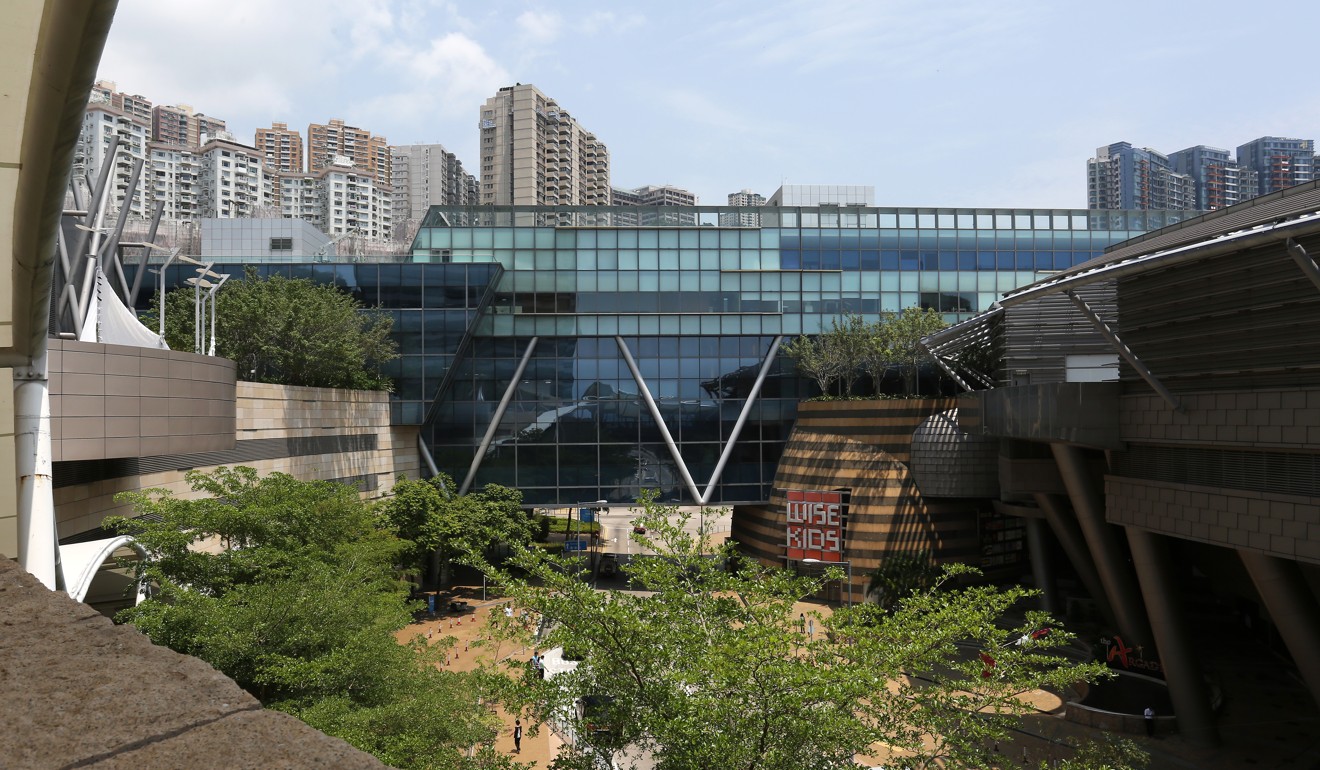
11.36am – R&D investment push
Chan says the government has started drafting a bill to offer super reduction for R&D investment. Chief Executive Carrie Lam last year proposed a 300 per cent tax deduction for the first HK$2 million invested by companies on research and development (R&D), with the remainder of the investment enjoying a 200 per cent tax deduction.
11.35am – Chan sets aside HK$50 billion this year to promote innovation and technology development, as follows:
HK$20 billion for a proposed technology park at the Lok Ma Chau Loop
HK$10 billion injection into the Innovation and Technology Fund
HK$10 billion to facilitate the use of medical technology and artificial intelligence
HK$10 billion grant for the Science Park in Sha Tin
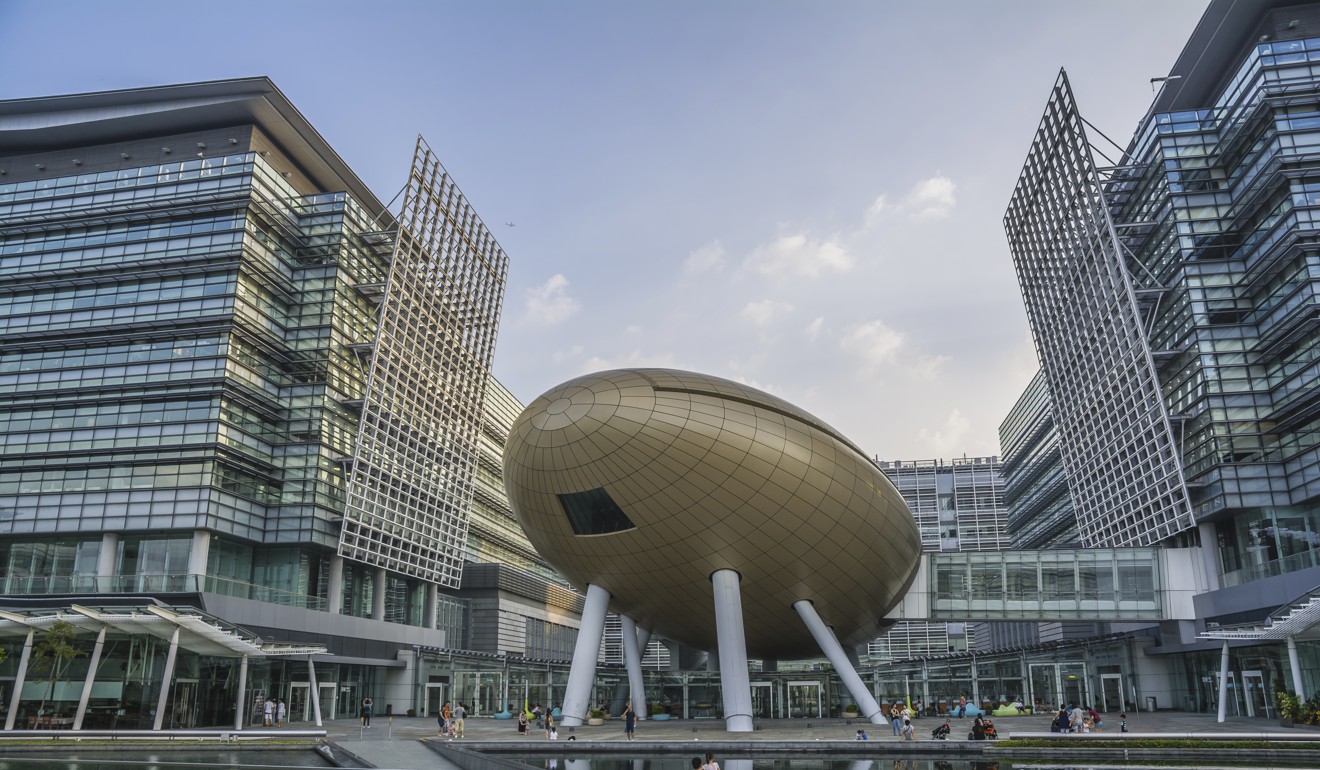
11.32am – Fiscal reserves nearly HK$1.092 trillion
Fiscal reserves are expected to reach HK$1.092 trillion by March 31, the end of the fiscal year, while the housing reserve will reach HK$78.8 billion.
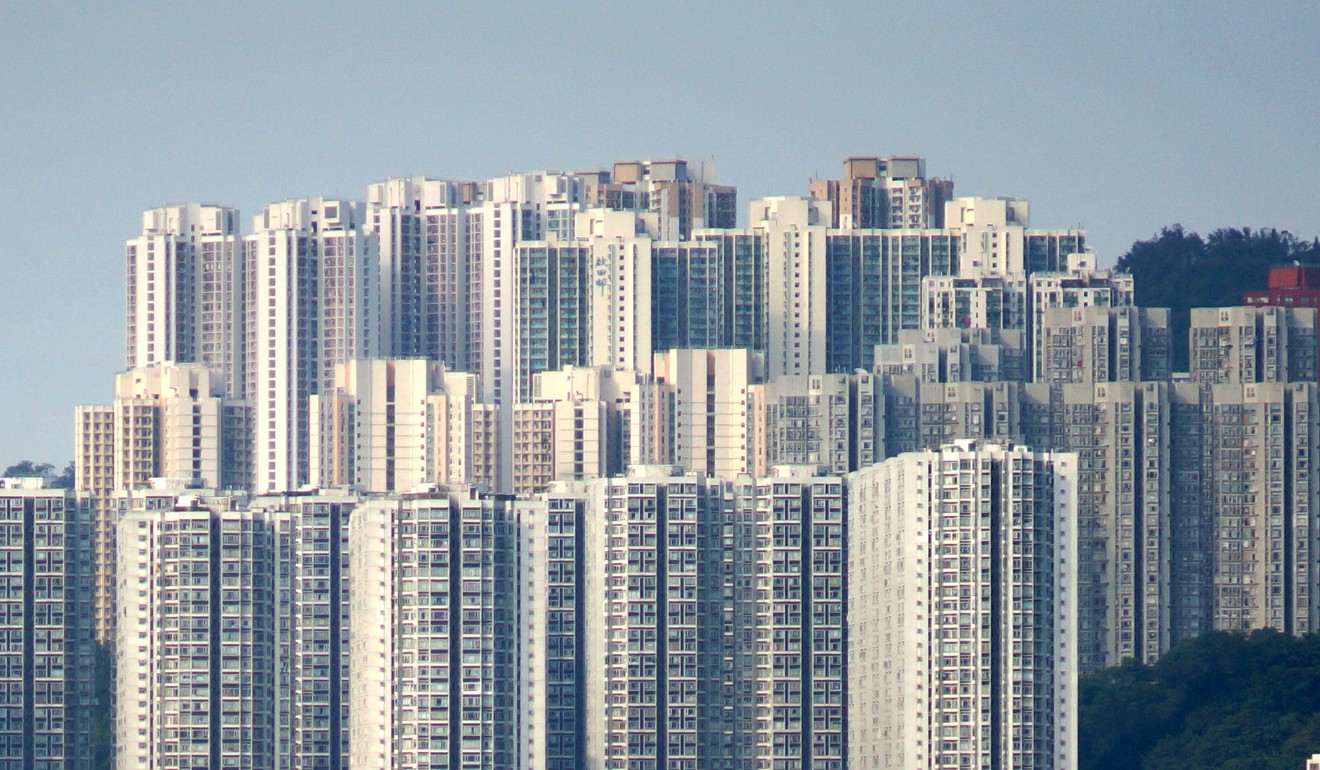
11.31am – Expenditures
As for government expenditures, Chan forecasts a revised estimate of HK$474.4 billion – 3.5 per cent lower or HK$17 billion less than the original estimate.
Chan says the budget for public expenditure will exceed 21 per cent of the city’s GDP.
“But I will ensure that the increase in public expenditure is necessary to meet Hong Kong’s actual needs.”
11.29am – Revenue figures
2017/18 government revenue stood at HK$612.4 billion – 20 per cent higher or HK$104.7 billion more than originally estimated.
He explains the higher revenue was due to lucrative land premium and stamp duties.
Invest Hong Kong’s massive fiscal surplus in better payment system, ex-monetary authority head says
11.26am – A caveat on the “healthy fiscal surplus”
The surplus notwithstanding, Chan says the city’s tax base is narrow and that revenue sources are limited.
Profits tax, salaries tax, stamp duties and land premiums account for 74 per cent of total government revenue in 2017/18.
11.25am – The massive surplus, confirmed
Chan estimates the government’s surplus for 2017/18 will be HK$138 billion.
He says he will share nearly 40 per cent of it with the public, while investing the rest on the future and on improving public services.
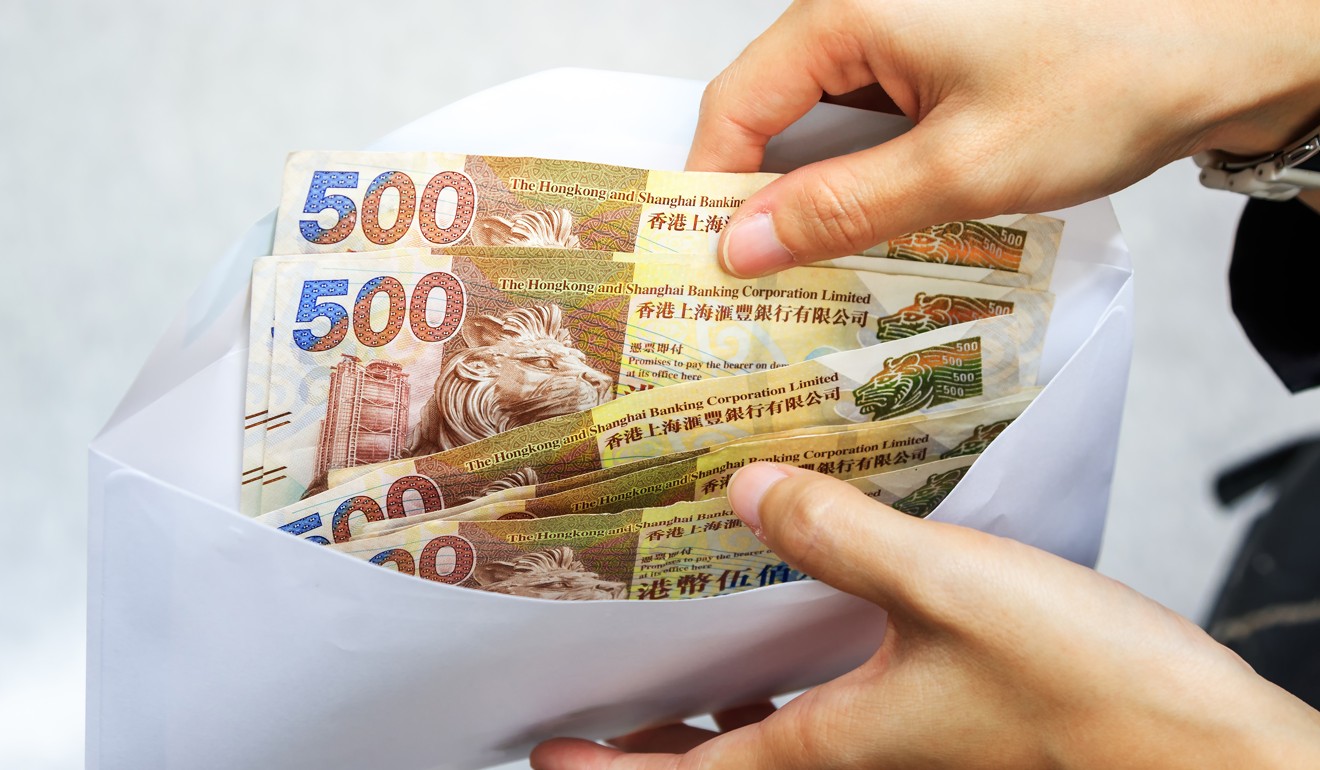
11.22am – Inflation prediction
Chan predicts inflation in 2018 to be moderate at 2.2 per cent, due to upward cost pressure brought about by sustained economic growth.
11.20am – Property market
He warns that the era of “ultra-low” interest rates will not stay in place and is putting pressure on the property market.
Chan says future interest rate hikes could affect the public’s ability to repay mortgages.
“The government will keep a close watch over changes in the property market.”
11.18am – US tax reform, mainland growth considered
Chan says he will monitor the implications of tax reform in the US, as well as the impact of Brexit on the Eurozone’s economy.
He expects the mainland to maintain medium-to-high growth, and continue driving the global economy.
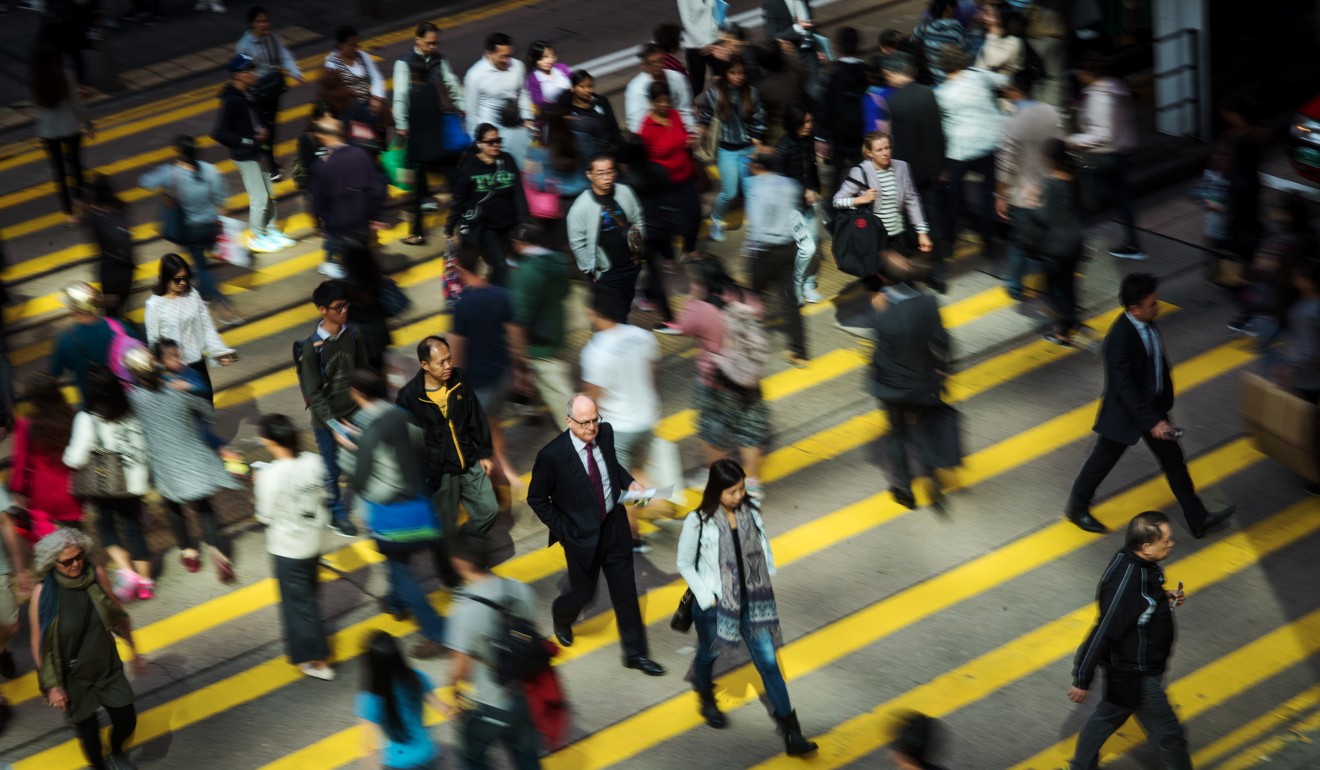
11.17am – Economic performance
In 2017:
Export of goods up 5.9 per cent
Private consumption up 5.4 per cent, marking highest rate of growth since 2011
Investment up 4.2 per cent
Overall: the city’s economy up 3.8 per cent
11.14am – Innovation and reform touted
Chan says while the government needs to respect market forces, the administration will look at issues challenging Hong Kong’s competitiveness. He singles out innovation as rising around the world.
He adds that the government will reforms its tax policies to encourage growth.
“I am confident that we can find new driving forces for our economy.”
11.13am – Land and manpower shortages
Chan notes the shortage of land and manpower is hurting Hong Kong’s economic growth. For the first time in his tenure, Chan suggests the “suitability” of importing foreign labour.
11.11am – A word on the ‘Belt and Road initiative’
“It will open up new room for the development of our enterprises as well as financial and professional services”.
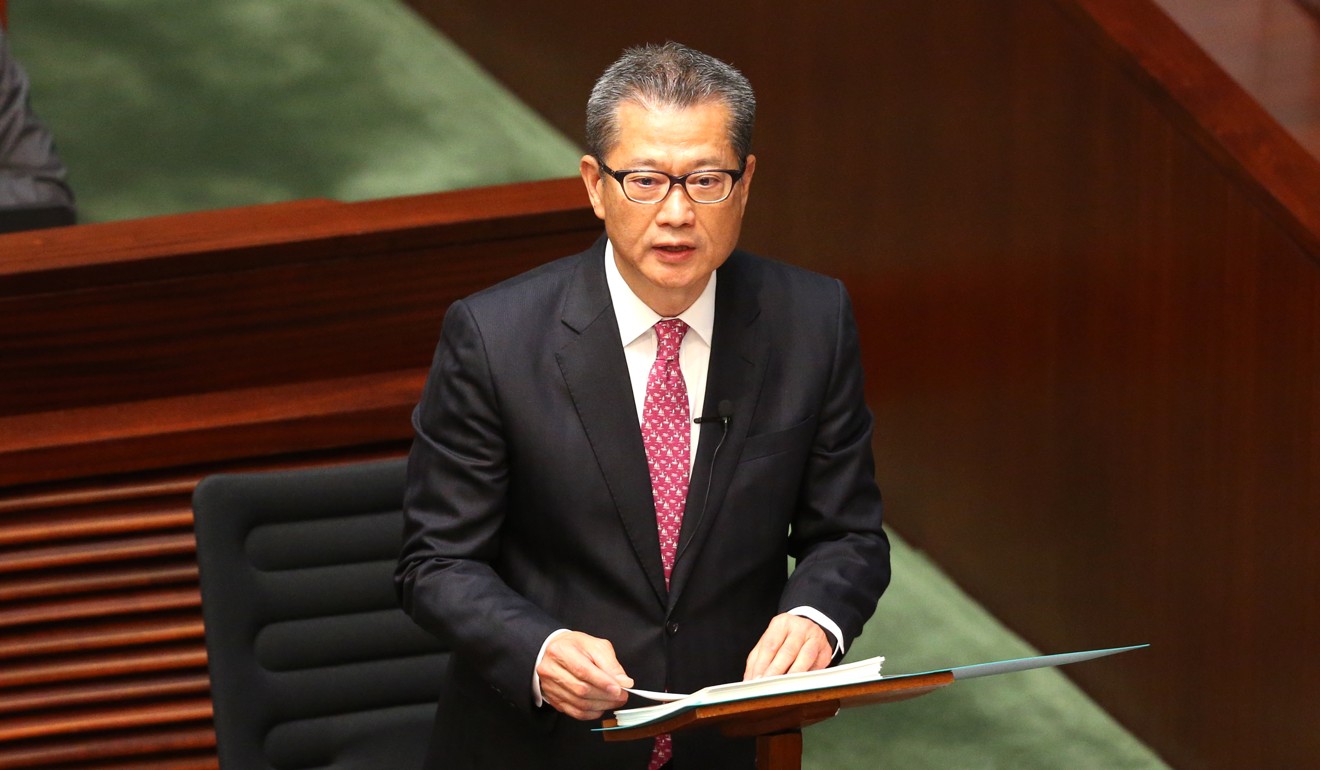
11.09am – Budget themes
According to the government’s website, these topics will be addressed in Chan’s remarks: diversifying the economy; enhancing liveability; nurturing talent; land resources; caring and sharing; reducing tax burden on individuals; government expenditure and revenue. The topics are almost identical to recent exclusive stories by the Post. Caring and sharing remains a theme from his previous budget in 2017, but significant reductions for salaries tax are expected.
11.09am – Global trends to follow
Chan says Hong Kong must to follow three “global trends” of development: innovation and technology; a shift in global economic gravity from the West to the East; and facilitating regional and bilateral trade negotiations.
11.07am – Beijing’s support
Chan says China’s economic development has promoted Hong Kong’s status as an international financial centre.
11.07am – The city’s wealth
Chan reports Hong Kong’s GDP per capita as US$46,000, placing the city among the highest in the world. But he says annual economic growth has been slowing to 2.7 per cent over the past decade.
He stresses that even though the government sits on ample resources, it still cannot meet every resident’s needs.
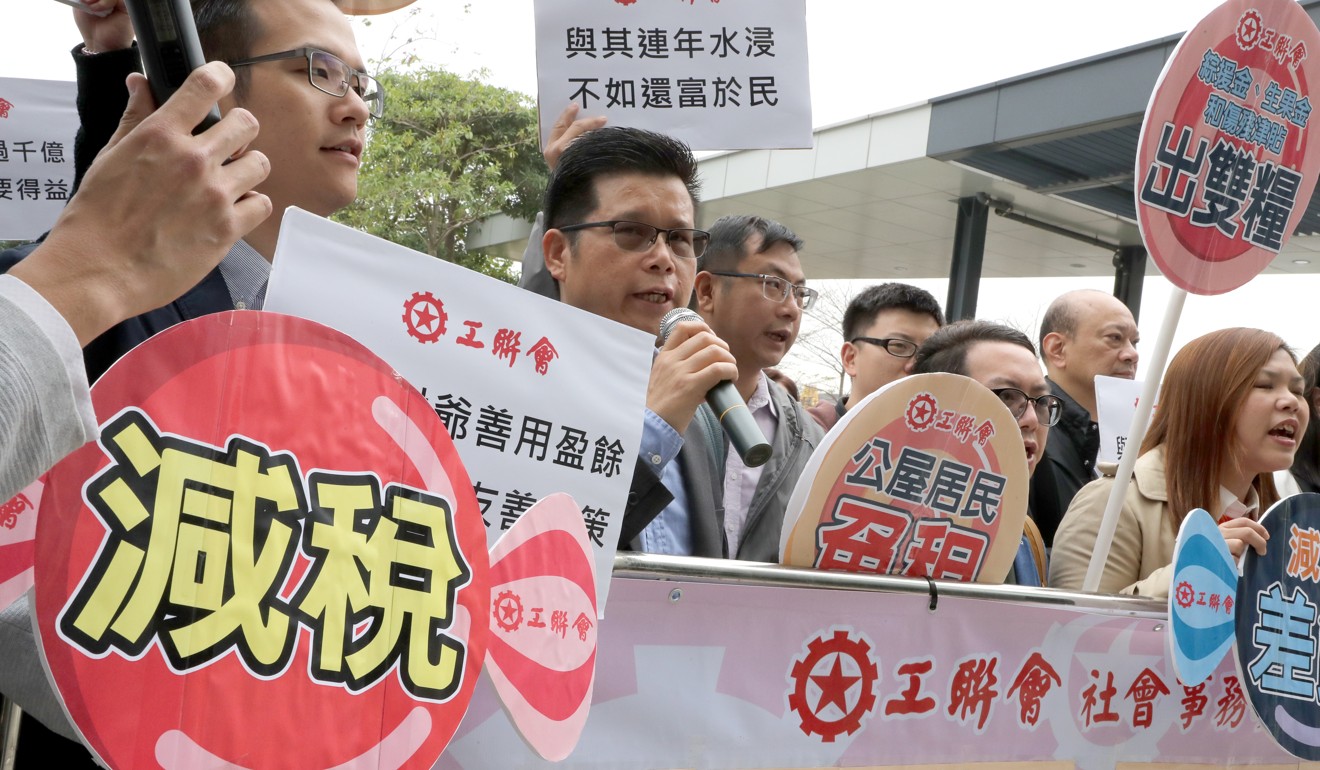
11.04am – ‘A systematic approach’
He says the government must prioritise its use of public resources in a “more systematic way” than in the past. A focus area will be diversifying the economy, with greater emphasis on giving the city’s young people more opportunities.
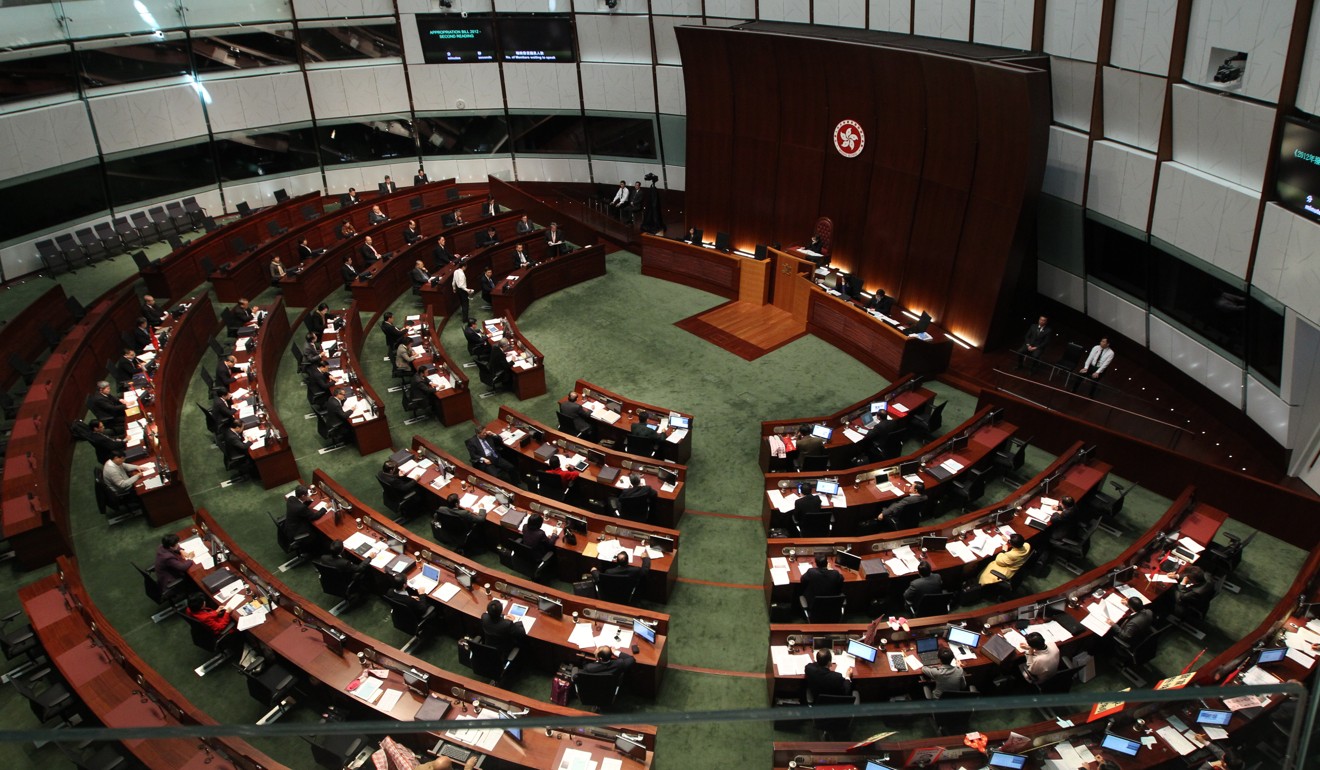
11am – Chan begins
Chan says he is delivering his remarks with a grateful heart, alluding to the public speaking up over the past few months during the government’s consultation and telling him their different expectations. He describes the process as humbling, and aims to explain the administration’s priorities in today’s address.
10.43am – The financial secretary arrives
Chan enters the Legco chamber at Tamar for his final preparations before he speaks at 11am, and says “morning” to the press.
10.30am – Protesters gather
Eight groups comprising 100 protesters gather outside Legco before Chan’s arrival. Pro-democracy groups People Power and the League of Social Democrats slam the government for what they claim is favouritism towards infrastructure projects over citizens’ livelihoods.
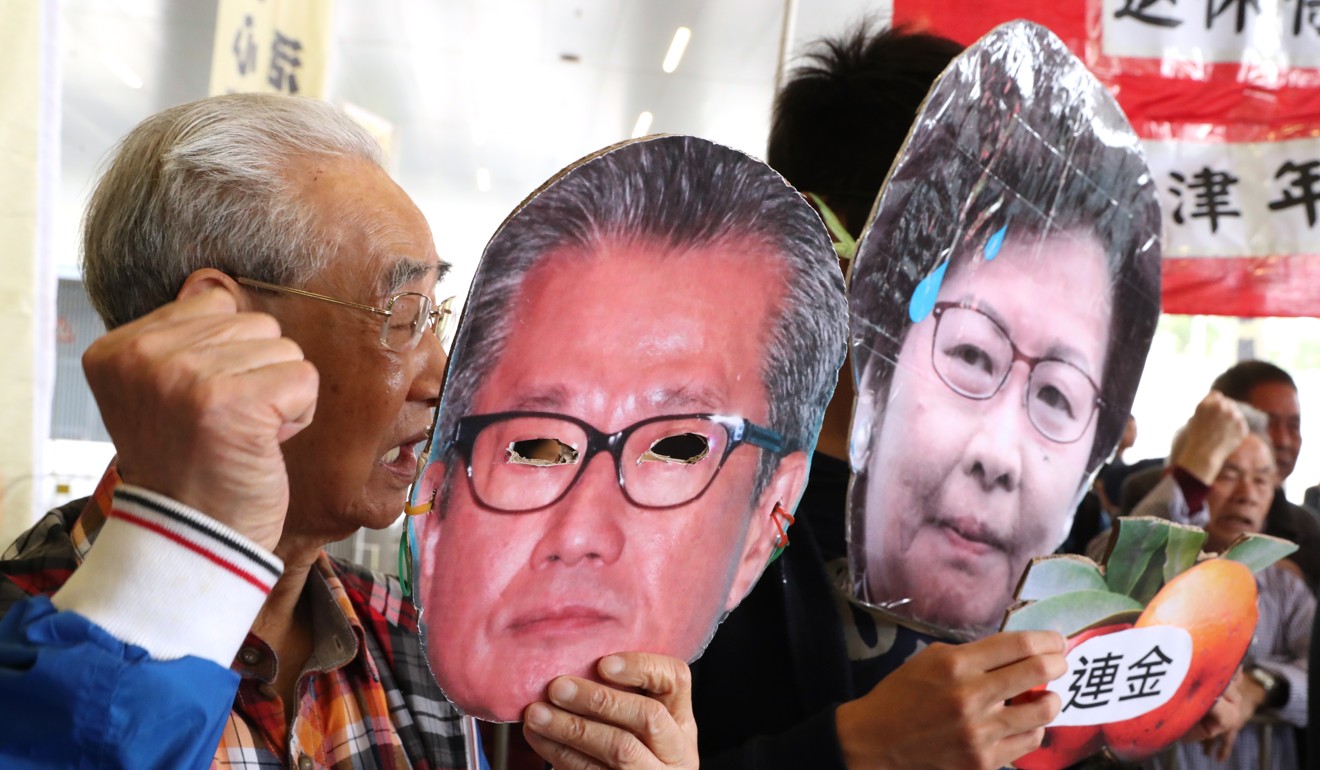
People Power’s Tam Kak-chi says tax rebates amount to “returning wealth to the wealthy”. He calls for a cash handout of HK$10,000 (US$1,278) for every Hongkonger.
Meanwhile, Federation of Trade Unions members call for tax rebates and rent exemption for public rental housing tenants.
Middle-class families to get ‘massive’ tax breaks in Hong Kong budget
Additional reporting by Sum Lok-kei and Kimmy Chung




